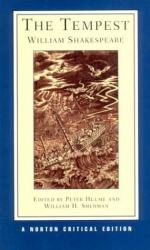|
This section contains 8,999 words (approx. 30 pages at 300 words per page) |

|
SOURCE: “‘Sweet Power of Music’: The Political Magic of ‘the Miraculous Harp’ in Shakespeare's The Tempest,” in Comparative Drama, Vol. 29, No. 1, Spring, 1995, pp. 61-90.
In the essay below, Simonds argues that in The Tempest Shakespeare promoted his views regarding the political reform of the monarchy.
In a recent paper critical of the logical discrepancies between “new historicist” theory and practice, Robin Headlam Wells argues that a true historical approach to The Tempest would focus on the mythological topos of Orpheus as the conventional prototype of Prospero rather than on modern views of colonialism and demonized otherness.1 In response to this important suggestion, I shall discuss here the conflation of two such traditional topoi in Shakespeare's tragicomedy: (1) the benevolent and thus successful ruler as Orpheus, a magician in control of Nature and the poetic civilizer of barbaric peoples, and (2) the ideal commonwealth as a melodious and fruitful garden. Since...
|
This section contains 8,999 words (approx. 30 pages at 300 words per page) |

|


